Thanks for taking the time to answer our questions! Could you tell us a little bit about yourself for those who don’t know?
My name is Kai Smith – I’m a multi-instrumentalist session musician/writer/producer & have been lucky enough to work with Artists including Dua Lipa, Example, Sean Paul, Zara Larsson, JME, Omi, MØ, Charli XCX, Alma, Dan Lancaster & many more.
We like talking about gear. What are the main components of your live setup with Dua Lipa?
With Dua I have two rigs – one stationed in the US & one in Europe. Here’s my rig rundown from the last campaign:
- Fender Pro Series Strat
- ‘80s Fender Japanese Strat
- ‘80s Gibson ES Artist
- Gretsch G5422T Electromatic
- Fender American Standard Strat (backup)
- ‘80s Squier Fujigen Strat (backup)
- Taylor 714ce (rented in wherever I do acoustic promo stuff)
I split these across the two rigs (a Strat & a semi on each + backup Strat) & use a Fender Hot rod Deluxe Mk IV for the amps (the clean channel on this is beautiful – super rich, but still clean and punchy). I should probably have identical rigs, but they’re fairly similarly matched & our FOH guy has very diligently made profiles for each pairing. We use a Royer Ribbon, AT4050 & Sennheiser 441 on the amp.
My pedalboards were built by the lovely Matt Randall who’s a tech for Queen & Royal Blood, among others. My board consists of:
- Korg Pitch Black Tuner
- BOSS NS2
- TC electronics Sentry
- Xotic SP Compressor
- Original run Hermida Zendrive
- Vemuram Karen
- BOSS DM2 Waza Craft
- Strymon Blue Sky
- BOSS RV5
- BOSS Space Echo w/ Expression Pedal
All of this running through a BOSS ES-8 with a Strymon Zuma Power Supply.
For Keys I have:
- Roland A-88
- Arturia KeyLab 61
- Korg PadKontrol
- An additional Roland A-88 mounted in Dua’s Sunflower Tank Upright Piano
These are all set up as MIDI controllers.
(above – Dua Lipa’s Sunflower Piano, with a concealed Roland A-88)
Do you find that you have to adapt your setup depending on the venue/your schedule?
We try and maintain as consistent a backline as possible when on tour to minimise issues with gain stages going to monitor/front of house. It can really mess up the IEM mixes if you suddenly start using a guitar with hotter pickups, or an amp that’s pushing out tonnes more mids.
If we have to hire in, then usual variables are amps, MIDI controllers & backup guitars. We try to make sure it’s the same brand/model if we have to hire any backline in. We’ve taken to using a power conditioner to power my pedalboard & amp as it cancels a lot of the ground hum you normally get. Until we discovered this I was doing a lot of creative gating in my pedal chain (hence the two gates) but now we don’t really need to do that so much. It’s great to have them as a failsafe though, in case we rock up somewhere with horrendous earthing & loads of video screens.
How about when you’re not touring? Do you have a studio setup or any gear that you like to use at home?
At the moment I’m trialling a load of new amps to add to my rig, so I’ve got a selection of different Victory amps in my studio. There’s a Kraken, V30II & RK50 alongside my Cornford Roadhouse & ‘70s WEM Dominator. I’m absolutely in love with the Victory RK50 at the moment. It’s one of those amps where, whenever I plug in, I’ll lose an hour or two in the blink of an eye. I think that’s when you know you’ve found an amp, or guitar, that resonates with you (excuse the pun) – you just can’t put it down.
I do a lot of writing sessions & production work when I’m not on tour, so have a nice writing/mixing area with some lovely Genelec speakers & a vocal booth tucked away in a converted walk in wardrobe. I’ve definitely acquired a few too many synths too! I used to do some product development & clinic work for Roland, so fell in love with a lot of their products. They’re my go to boards.
Can you think of any particular equipment that’s changed your approach to performance or music as a whole?
The Boss ES-8 was a game changer for me. Again, I’ve done some demo work for Boss & have a great relationship with the guys, so when it was launched it was a no brainer to go and try it out. It was really nice to be able to program in all of my different patches for each song in the set and be able to scroll between them without tap dancing around my board. I had a fleeting relationship with a Voodoo Labs MIDI switcher at the start of my career, but for some reason it didn’t like my signal chain & it got very noisy. The ES-8 is super clean though and for me the interface is a lot more user friendly. You can also get really creative with your routings, MIDI, assigning expression pedals & even set up separate parallel sends to different effects whilst keeping a dry signal too. Great if you want to cheat a wet/dry blend to your overdrive pedals.
(above – the Boss ES-8 is a pivotal part of Kai’s rig with Dua Lipa)
Do you own or use any wildcard bits of gear that our readers might not expect?
I have a pedalboard setup in my studio that I use as both my vibe board for jamming & an outboard FX bus that loops in & out of my interface. It’s great when I want to get super creative and experimental and has a few wild pedals on it:
- Chase Bliss Limited Run Thermae Delay
- Chase Bliss Warped Vinyl MkII
- Retroactive Pedals Dot Chaser
- MkI Bluesbreaker (I love this pedal – I just tend to buy them whenever I come across them now because they seem to have started ramping up in price recently. I think I’ve owned 4 over the years, 2 of which have gone walkies. But I’ve still got 2 left, which I keep in the studio!)
- Land Devices Harmonic Percolator
- Gojira Trembulator
I also have a Frankenstein’d ‘80s Japanese Tele that I completely gutted. We converted it into a hardtail & kitted it out with a Strat Seymour Duncan 5-2 in the neck & a coil tapped Bareknuckle VHII in the bridge. It’s a bit of a monster & my go to recording guitar!
Who would you cite as an influence when it comes to your playing and sound?
I grew up listening to loads of different music, but there were definitely a handful of guitarists that really made my ears prick up. I was into really shreddy stuff when I was younger; Malmsteen, Jason Becker, Vai, Shawn Lane and so on. But playing-wise, my favourites have always been Jeff Beck, Richie Kotzen & Guthrie Govan. They were & still are huge influences to me & definitely shaped my playing a lot.
In terms of sound I was obsessed with heavily processed tones for a lot of my teens & twenties (before I discovered the beauty of a straight up cranked single channel valve amp). I was drawn to bands like Oceansize, Mars Volta & A Perfect Circle for their atmospheric sensibilities & then bands like The Dillinger Escape Plan, Architects & Underoath for darker sonics.
Obvious question, but do you maintain any sort of practice routine?
I try to always dust off my scales, arpeggios & CAGED chords on a daily basis. It’s just good exercise really & you can hone or develop loads of new techniques using that as a loose framework. I find Travis picking super useful in a session capacity, so I usually spend time working on different picking fingerings to run through licks/scales/arps etc. just so it keeps my left/right-hand sync sharp.
How about warming up before a show? Any tips or tricks you’ve learned over the years?
I normally run over any fiddly parts in the songs before we play. I do finger, Travis & alternative picking warmups & hand stretches to make sure I’m loosened up. It’s easy to pick up cramps, strains or RSI when playing every day. With most of the artists I’ve played for, we usually have a pre-show ritual. More often than not it’s pretty weird and is all about getting psyched up & rid of any nervous energy just before you head out on stage. I also usually pick up a little superstition whilst on a tour. When I tour with Dua, I always make sure I have some gum to chew through the show. Bubblemint is my favourite, ha!
Many musicians struggle with the idea of music & creativity becoming ‘work’, thus losing some of its magic. Have you ever experienced this, and if so, how did you work past it?
I think it’s important to have a few different projects going on if you do music for a living. I always try and have some kind of ‘vent’ project where you can have full creative freedom and do what you want with no boundaries. That way you can really give the work side your full professional commitment.
In terms of being a session musician, I think you have to find a love for knowing a set inside out, note for note & nailing it night in, night out. I know this can be said for any band, but there is the additional element of the fact you’re being hired to do that specific job & also not wanting to let the artist or the other members of your team down. There isn’t really room for messing around, so you have to leave your ego at the door. I think if you can compartmentalise like this you’ll get the most out of both aspects. If anything, I come back off tour overflowing with creativity and ideas, so as long as you allow yourself that space to vent it, you’re cool.
Another obvious question, but does music theory play a part in your work as a performer?
I guess it’s one of those things that you just take for granted because it’s so ingrained in your everyday life – but yeah, I’d say so. Even if it’s something as stupid as being able to predict the chords and cadences that are coming up next when learning a new song for the set. It just expedites a lot of the work flow, especially when I’m re-arranging songs for live lounges, or acoustic sessions. If you know how harmonic and melodic relationships should interact & have a good vocabulary of chord voicing & modes then it’s a lot easier to make arrangements pop, or set the right tone/mood that you need for that specific piece.
I guess a quick working example with regards to an acoustic arrangement would be using higher rooted tight voiced chords for verses, then using open wide voicings with a lower root for the chorus to give more of a dynamic range. It seems fairly obvious & doesn’t really require any deep theory I guess, but as I said it’s good to have knowledge of harmonic relationships.
Having said that I’d definitely say I’m more of an ear/vibe player – I’ve never been able to read music. When I was 8 I fooled my classical guitar teacher into thinking I could sight read for nearly a whole year. I would get him to show me an example of how a piece was played before we read it & then would just play it back by memory/ear instead of following the dots. He probably should have cottoned on sooner…
Time for some career talk. At what point did you decide you wanted to become a professional musician?
I guess it all started at the age of 14. I’d played guitar beforehand – I started playing classical/Spanish guitar at the age of 8 I think – but when I started playing electric and gigging with a band, I never really looked back. I went from being an A/A* student across the board to being put on report & on imposed after school study club within the space of a year. I became obsessed with playing guitar 24/7 & didn’t really care about anything else. Needless to say my parents weren’t too happy. They tried to ban me from playing, but I hid a guitar at school & would sneak out of lessons to play it.
How did your studies contribute to your experience as a professional?
I’m predominantly self-taught, with a year spent at The Brighton Institute of Modern Music studying guitar playing. Other than refining & fast tracking a lot of my technique development & session styles, I think the most important lesson I learnt was that you have to be able to play simple, repetitive things really well. That’s your bread and butter & that’s what ultimately pays the bills.
You’ve spent a lot of time in recent years performing at massive venues, prestigious events and touring the world. Did you gradually adjust to that lifestyle or was it quite abrupt?
It was incredibly abrupt actually, ha! I was lucky enough to land my first big name audition & went straight into rehearsals & gigs. I went from playing pubs & clubs, with my original alt-punk band, to playing worldwide broadcast Arenas, Stadiums, Festivals & TV performances within the space of a few weeks. Definitely a baptism of fire!
As a session guitarist, a lot is expected from you – sometimes it’s choppy chords, sometimes it’s ripping lead parts, or anything in between. How do you handle the diversity of your role?
I think you definitely lean into it the longer you’re on the road! In this line of work, you inadvertently end up playing the same riffs/songs/styles every night for long durations of time, so you tend to embrace any diversity that crops up. I make sure to keep up to date with different key styles, techniques & technology in case I get thrown a wildcard by the management or musical director. It’s important to always have at least a decent understanding of things that could be asked of you, even if you haven’t put it into practise yet.
Do you get much time between schedules to yourself? How do you decompress, either on or off the road?
The campaign I just got home from was intense to say the least. 18 months straight of touring & I think we were averaging about 4/5 days back home a month. When your schedule is that packed it’s important to maintain your physical & mental wellbeing. Eat well, get regular physio/massages, exercise when you can & try to meditate or practise some kind of mindfulness. Also it’s important to let your hair down every now and again. It’s an incredibly high-pressure environment & if you don’t have some fun then you can get really stressed out. When I get home it’s all about spending lots of time with my fiancé & cat! I love cooking, so usually spending a load of time in the kitchen the first week or so I’m back.
Could you pick a favourite moment of your career so far?
There have been a load of proper pinch me/bucket list moments over the years – Playing Wembley Stadium, Madison Square Garden, The Champions League Final…but weirdly they aren’t the ones that stick out the most. I’m predominantly a guitarist, but I’ve also been playing keys professionally since I started touring properly. I had never played keys growing up & kind of fell into the roll by accident when I accepted an audition for a guitar/keys/vocals session gig. The audition was in 48 hours, so I had to cram learn 6 tracks worth of keys, with the help of my girlfriend at the time, who is an incredible keys player. Anyway, I landed the gig and began touring as a guitar/keys/backing vocalist, but the keys parts were all very synth-based and luckily I never had to learn anything too crazy.
When I started touring with Dua, piano playing & arrangement became a much larger part of my role than it had previously been. A majority of the songs have piano as a lead instrument & there are quite a few points when I accompany Dua on solo instrument duets – both in the live show & for stripped-back promo performances. The first two times I performed live-to-air piano duet with Dua on TV were on Jools Holland & Saturday Night Live. I don’t really get nerves before performances, but on these two occasions I was pretty terrified! Jools himself called me over & invited me to play the song on his grand piano whilst he stood watching over my shoulder, then on SNL the stage manager called me over only to whisper in my ear ‘don’t f*ck this up’ seconds before we went live to air. After I finished each of these performances I had the biggest rush of my career! I felt like I could achieve anything. It’s an incredible feeling of vindication when you tell yourself you can do something & then put in the work to test your capacity and make it happen.
How about horror stories? Any nightmare experiences on the road that you’d be happy to share?
I could tell you dozens or horrendous travel experiences, but they’re not really that interesting & you kind of become numb to them after a while. I broke my arm whilst on tour recently which wasn’t ideal! I was utilising on of the handy Lime electric scooters whilst in Denver on a day off & crashed after skidding on some black ice. A rapid trip to A&E & £3,000 worth of hospital fees later, I’d ascertained that my arm was broken with the advice that it would take 6 weeks to heal. I had to stay up all night with our MD & playback tech, cutting up all of the audio to my parts from a multitrack recorded show (luckily we record most shows from FOH). We then popped all my recordings in the playback project for each song so that my parts would still come out of FOH. I missed one full headline show & a 4-track promo show, but was back in the saddle after 2 weeks of intense rest.
If you could give a single piece of advice to budding musicians, what would it be?
Listen. Listen to people giving you advice. Listen to your boss, whether that be Label, MGMT, Artist or MD. Listen to the fans. Listen to your bandmates…there are too many musicians out there not listening to how their playing is effecting the environment around them. If you’re a guitarist, don’t clog the vocal frequencies. If you’re a bass player watch that your parts don’t clash with the vocal harmony. If you’re a drummer, are you doing fills over an important lyric that the audience need to hear? I think that’s probably my best piece of advice – if everyone is listening to each other it makes for clean, tight, compassionate music.
Finally, the obligatory ‘what’s next’ – any cool stuff lined up for 2019?
We have a big chunk of downtime with Dua this year, so I’ll be working on some other projects in the meantime. I have a handful of exciting artists I’ll be doing live work with & will be focusing a lot of time on writing/production work. It’s nice to finally get back in the studio after so much time on the road! I’ll also be doing a bit more work with some of my favourite guitar/amp/pedal brands & have got an artist project of my own launching this year under the name KÅIKÅI. It’s a collection of songs that I’ve been working on whilst on tour, but haven’t been able to do anything with due to the crazy schedule – so it will be nice for them to finally see the light of day!
To play us out, here’s Kai’s Radio 1 Live Lounge session with Dua Lipa, Zara Larsson, Charli XCX, MØ & Alma – enjoy:


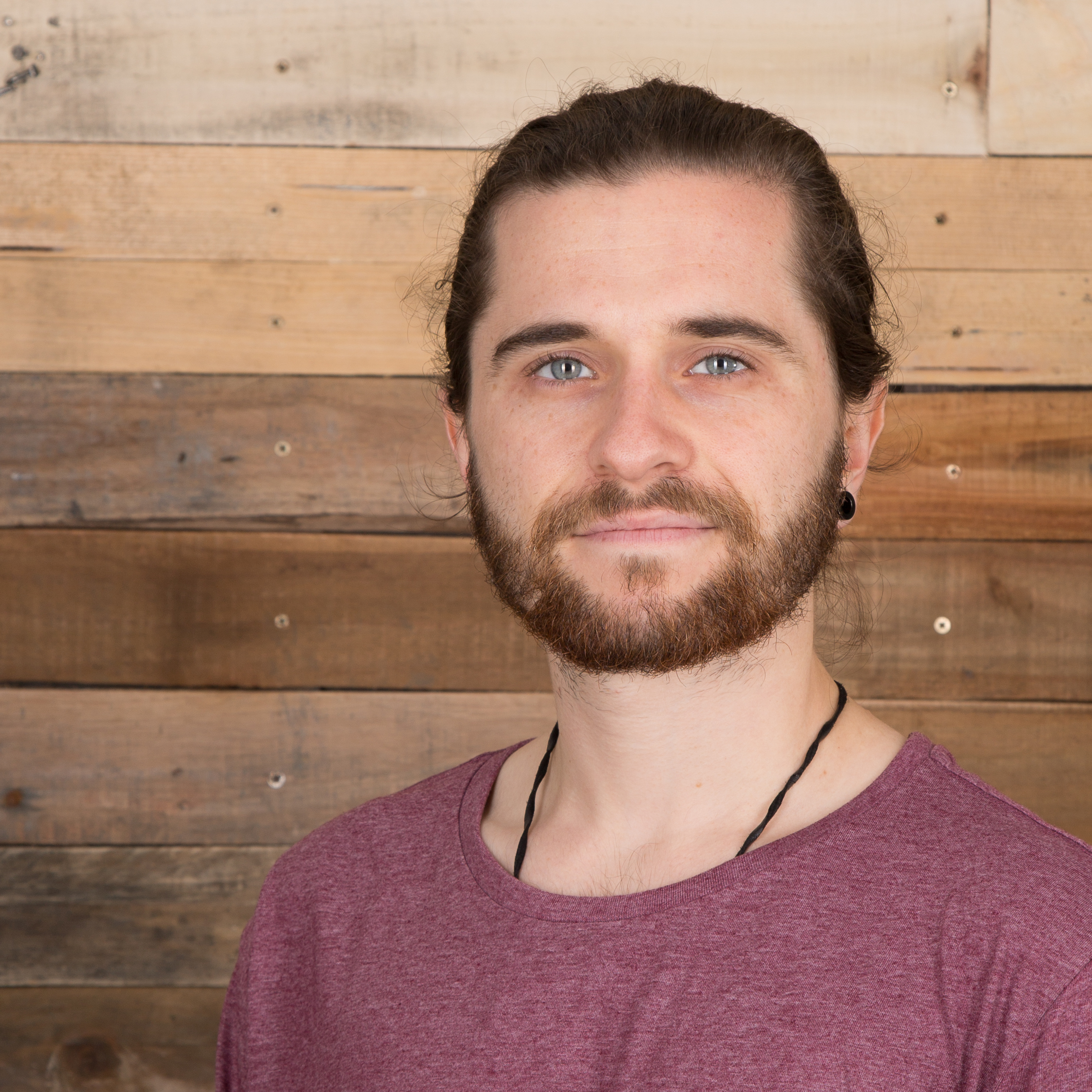
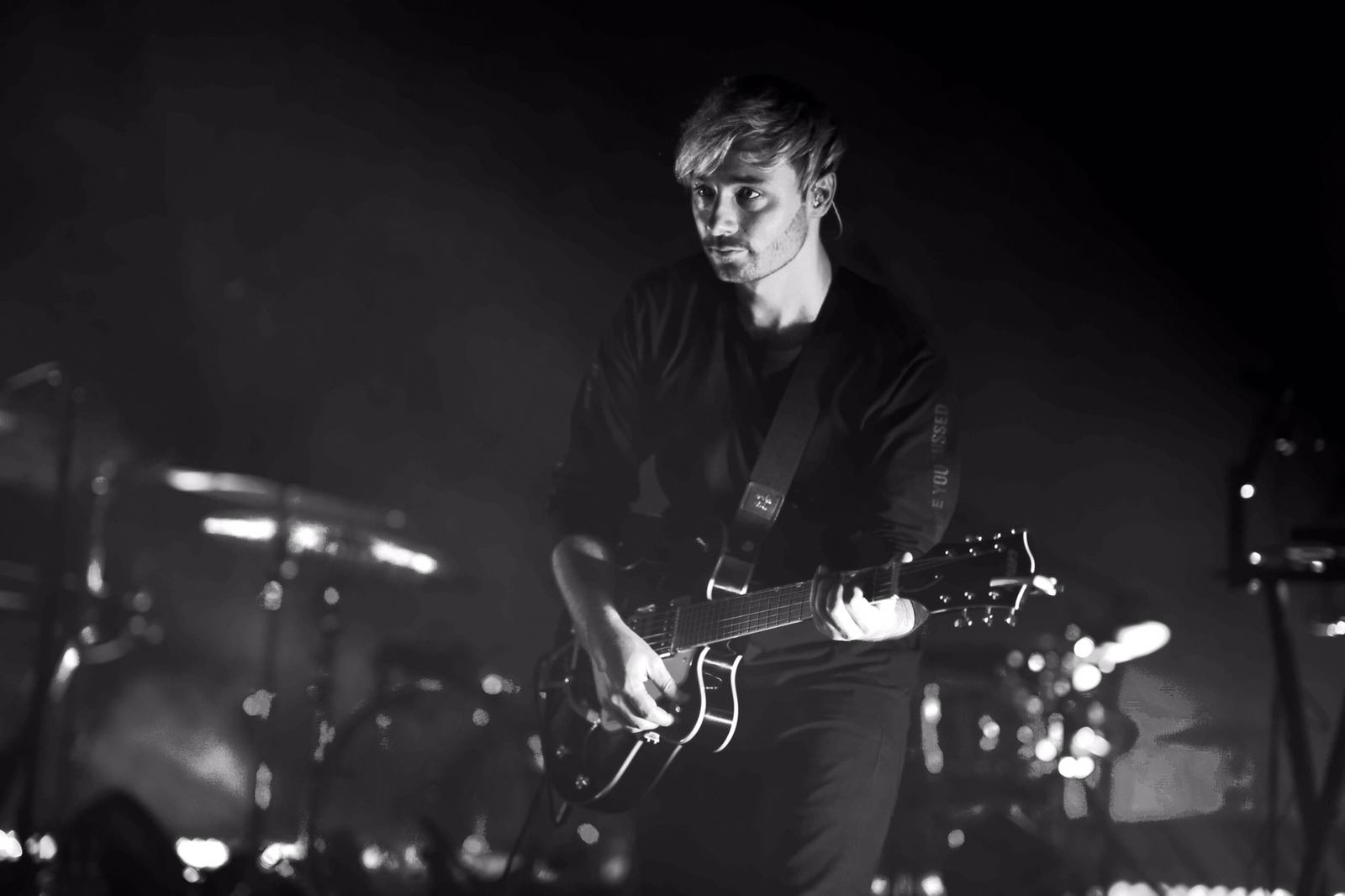

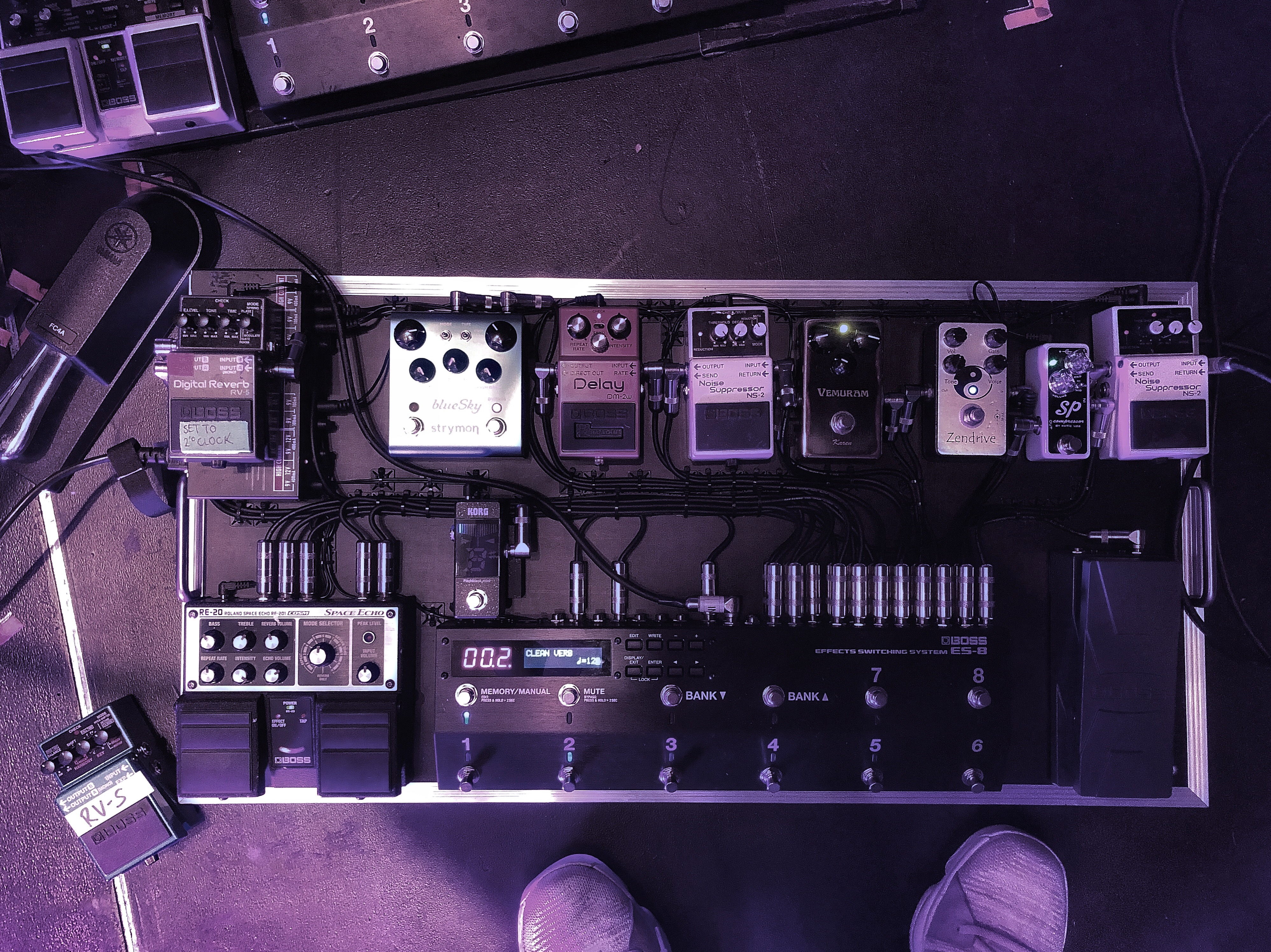
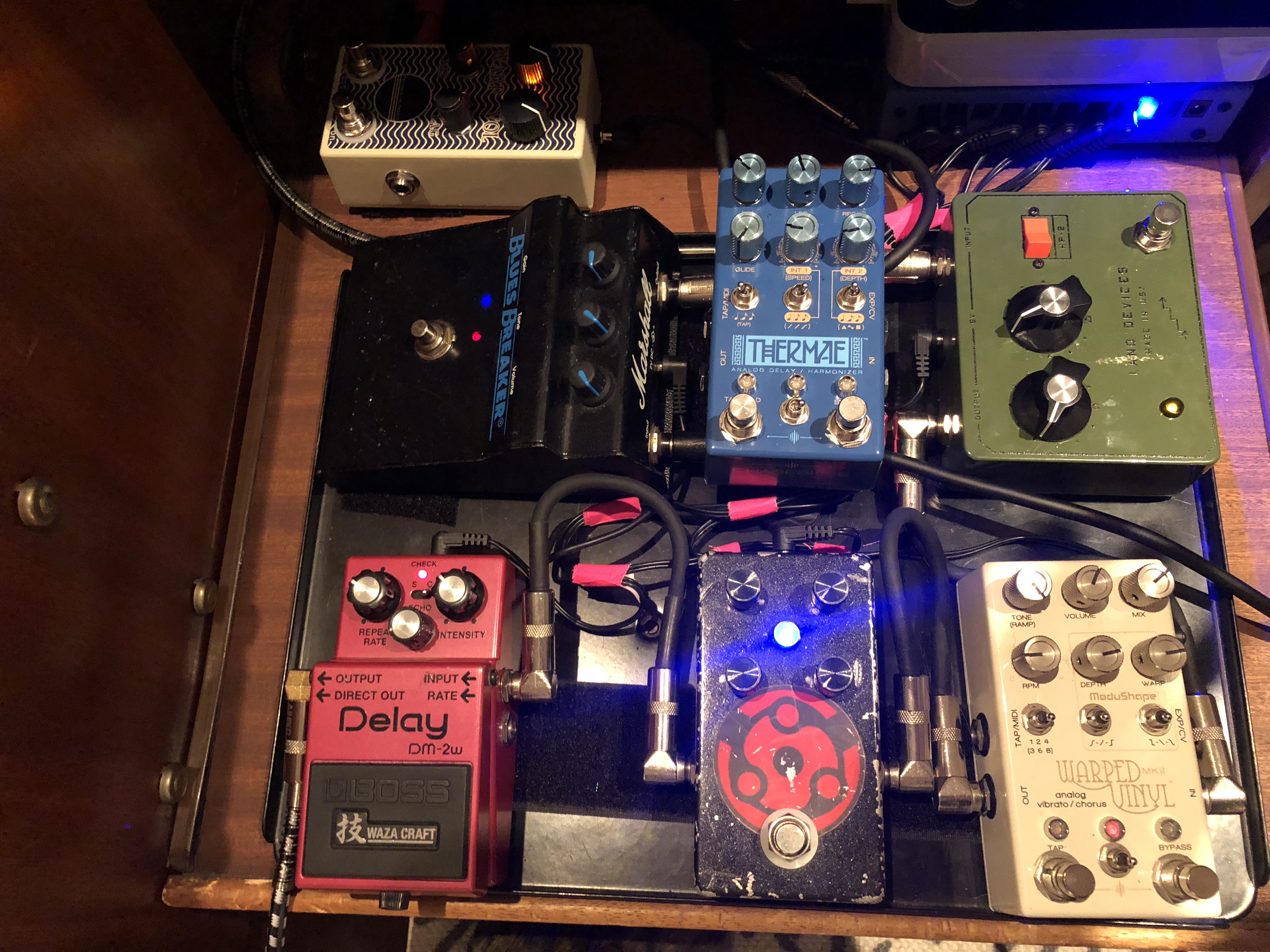
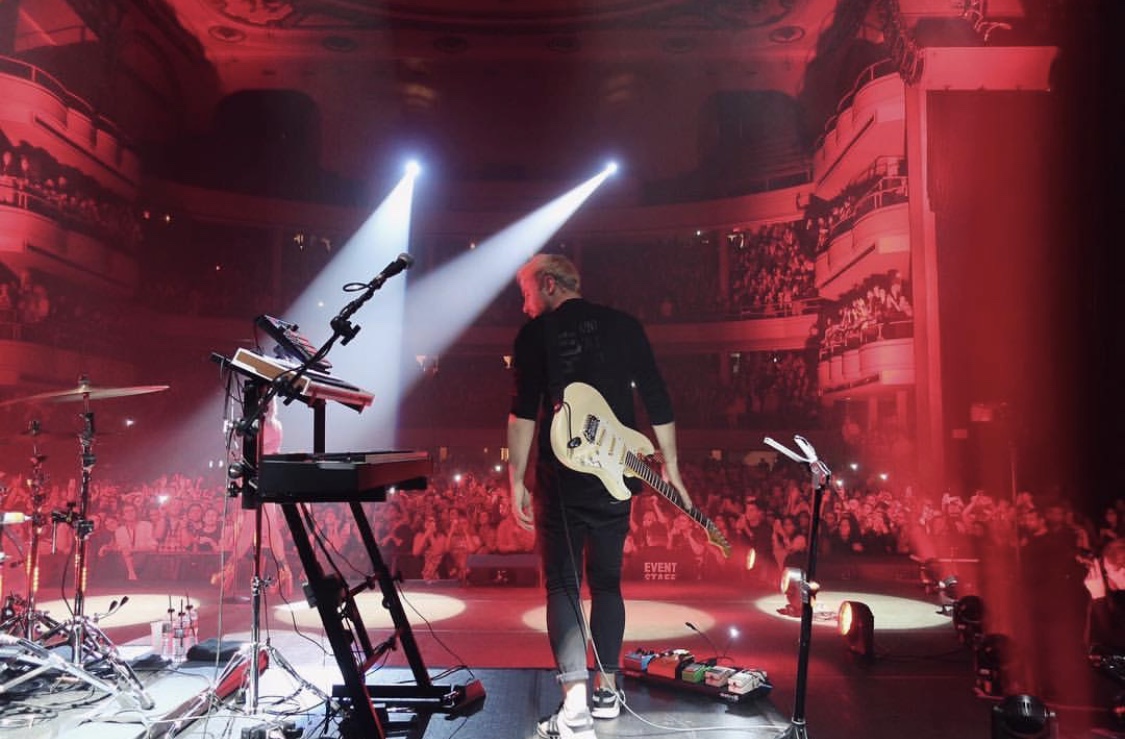
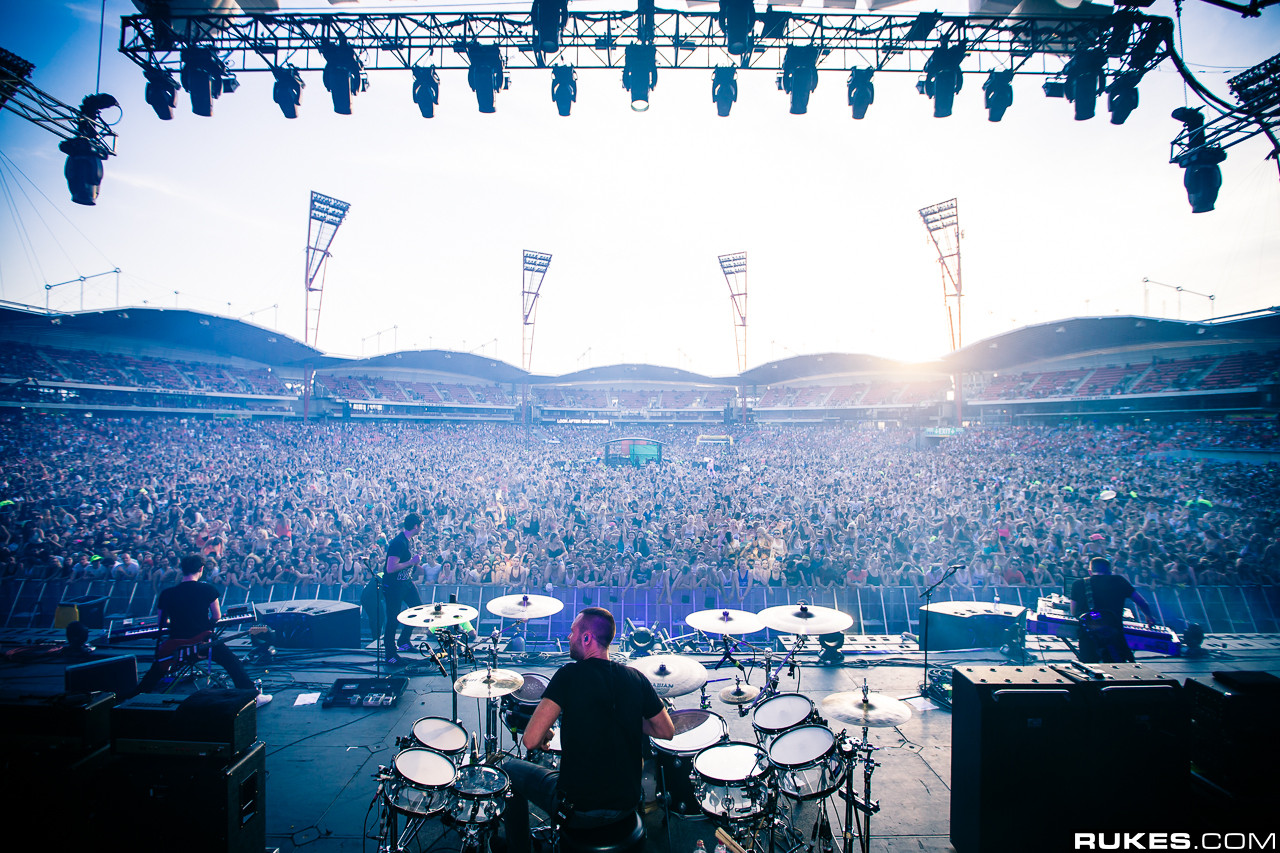
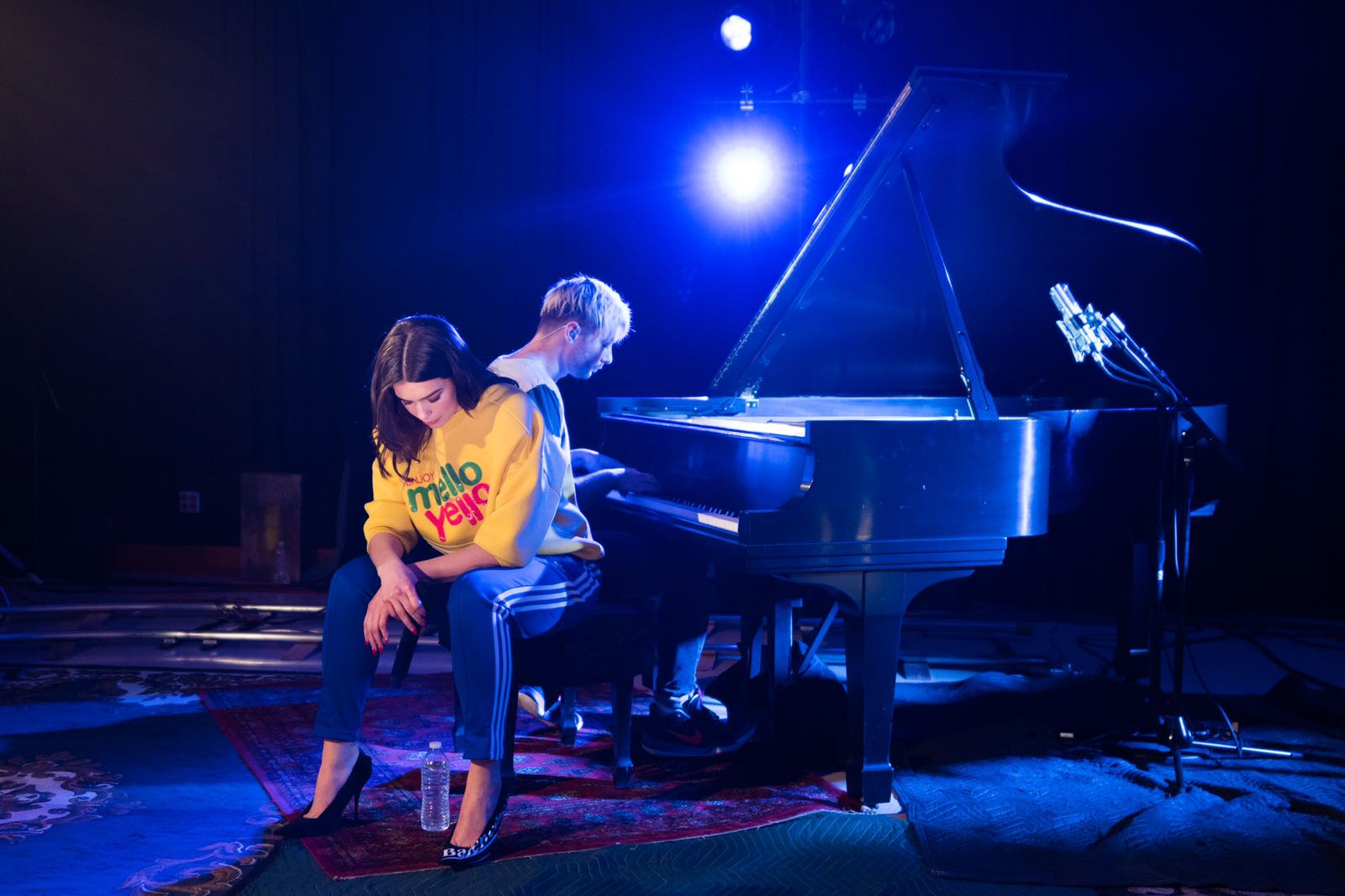

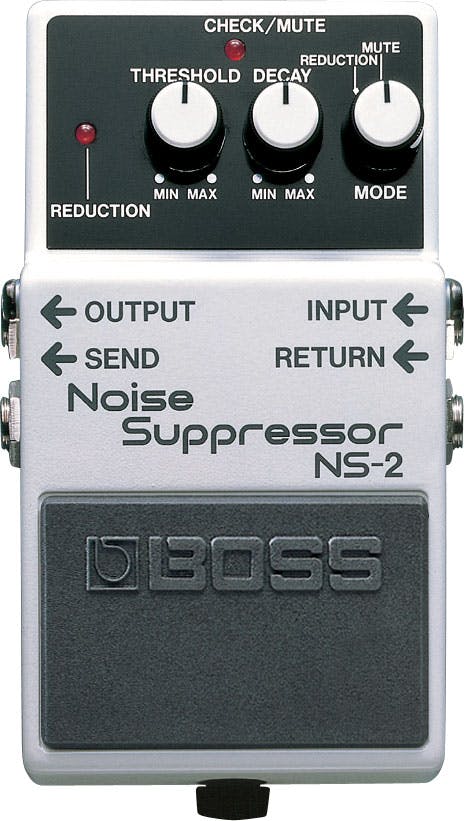
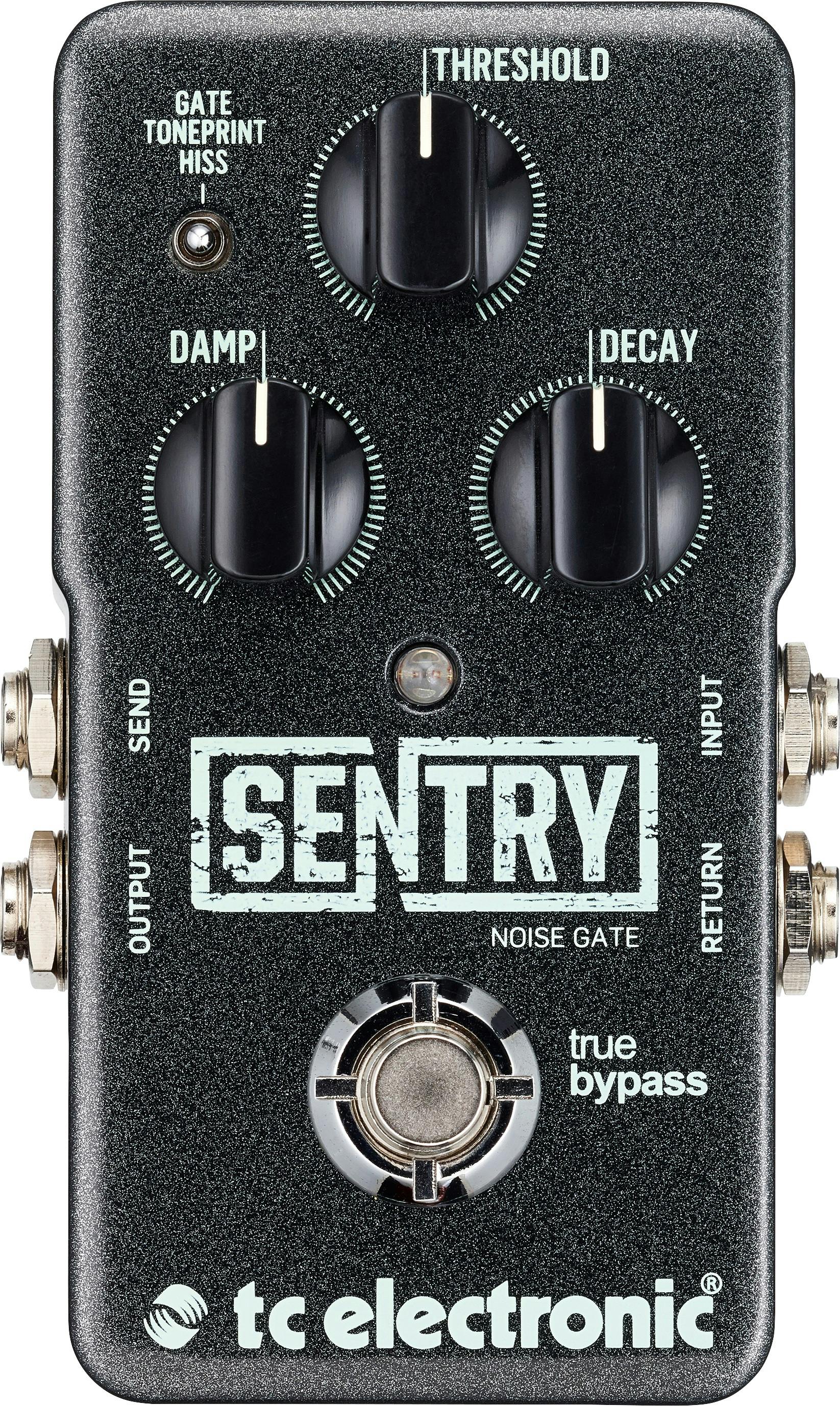
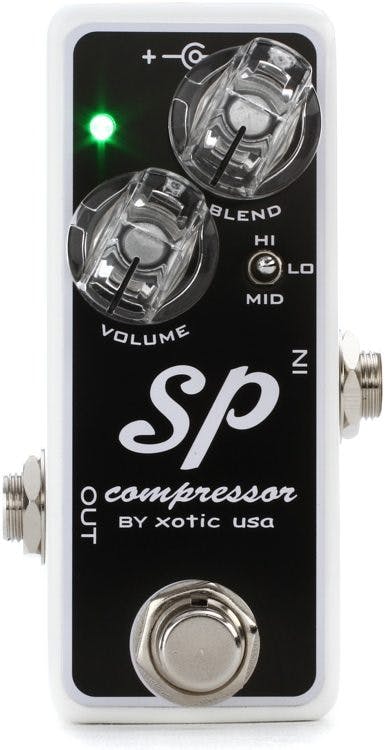
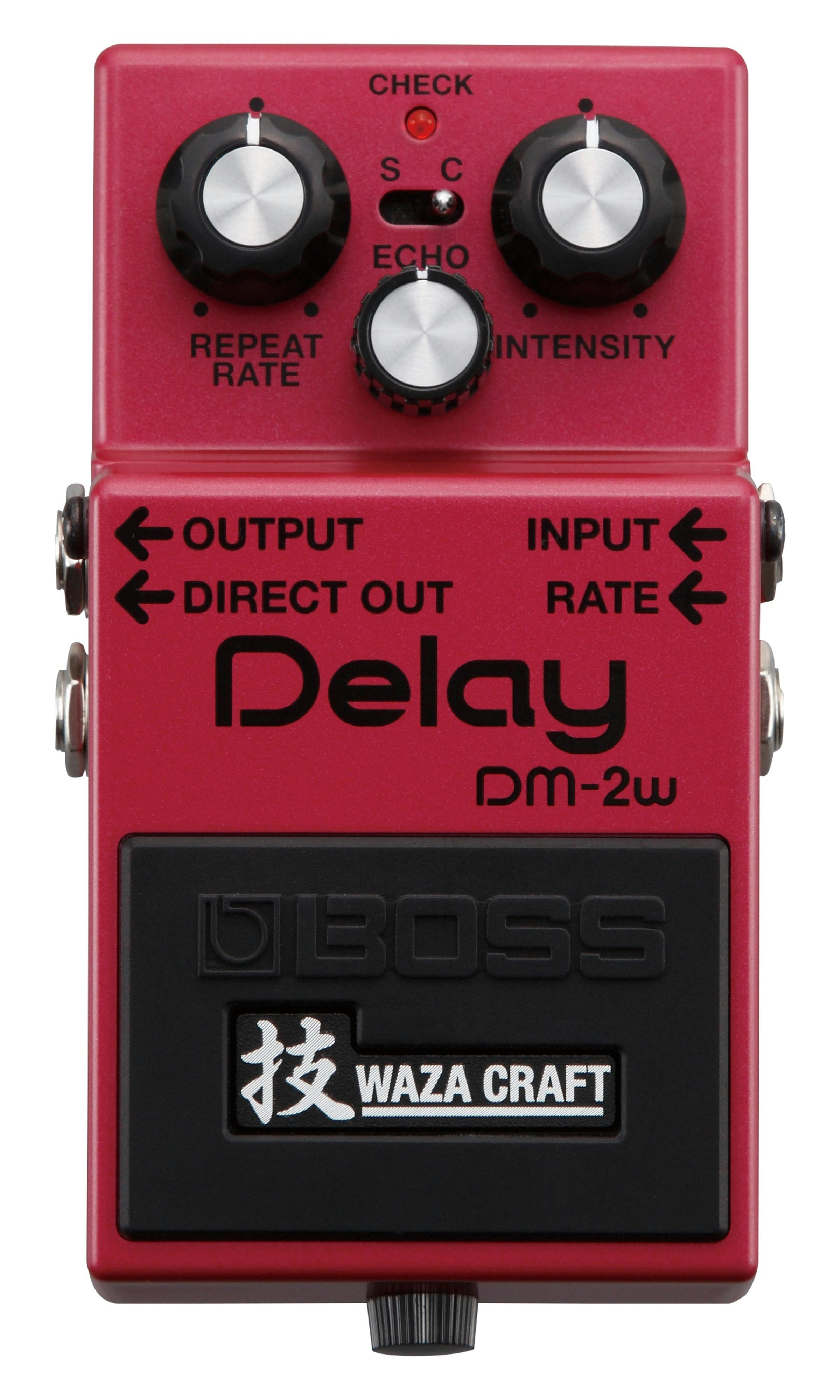
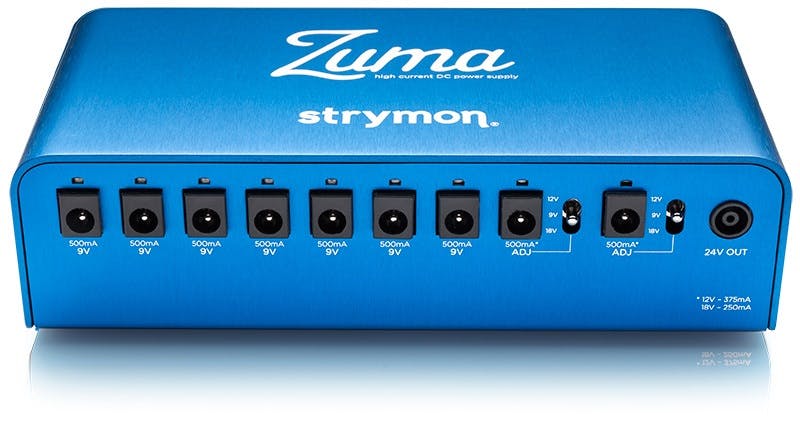
Responses & Questions